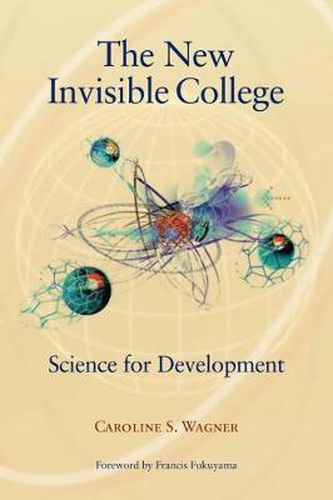Readings Newsletter
Become a Readings Member to make your shopping experience even easier.
Sign in or sign up for free!
You’re not far away from qualifying for FREE standard shipping within Australia
You’ve qualified for FREE standard shipping within Australia
The cart is loading…






The twentieth century was the era of big science. Driven by strategic rivalries and fierce economic competition, wealthy governments invested heavily in national science establishments. Direct funding for institutions like the National Science Foundation and high-visibility projects, such as the race to the moon, fueled innovation, growth, and national prestige. But the big science model left poorer countries out in the cold.Today the organization of science is undergoing a fundamental transformation. In T he New Invisible College, Caroline Wagner combines quantitative data and extensive interviews to map the emergence of global science networks and trace the dynamics driving their growth. She argues that the shift from big science to global networks creates unprecedented opportunities for developing countries to tap science’s potential. Rather than squander resources in vain efforts to mimic the scientific establishments of the twentieth century, developing country governments can leverage networks by creating incentives for top-notch scientists to focus on research that addresses their concerns and by finding ways to tie knowledge to local problem solving. T he New Invisible College offers both a guidebook and a playbook for policymakers confronting these tasks.
$9.00 standard shipping within Australia
FREE standard shipping within Australia for orders over $100.00
Express & International shipping calculated at checkout
The twentieth century was the era of big science. Driven by strategic rivalries and fierce economic competition, wealthy governments invested heavily in national science establishments. Direct funding for institutions like the National Science Foundation and high-visibility projects, such as the race to the moon, fueled innovation, growth, and national prestige. But the big science model left poorer countries out in the cold.Today the organization of science is undergoing a fundamental transformation. In T he New Invisible College, Caroline Wagner combines quantitative data and extensive interviews to map the emergence of global science networks and trace the dynamics driving their growth. She argues that the shift from big science to global networks creates unprecedented opportunities for developing countries to tap science’s potential. Rather than squander resources in vain efforts to mimic the scientific establishments of the twentieth century, developing country governments can leverage networks by creating incentives for top-notch scientists to focus on research that addresses their concerns and by finding ways to tie knowledge to local problem solving. T he New Invisible College offers both a guidebook and a playbook for policymakers confronting these tasks.